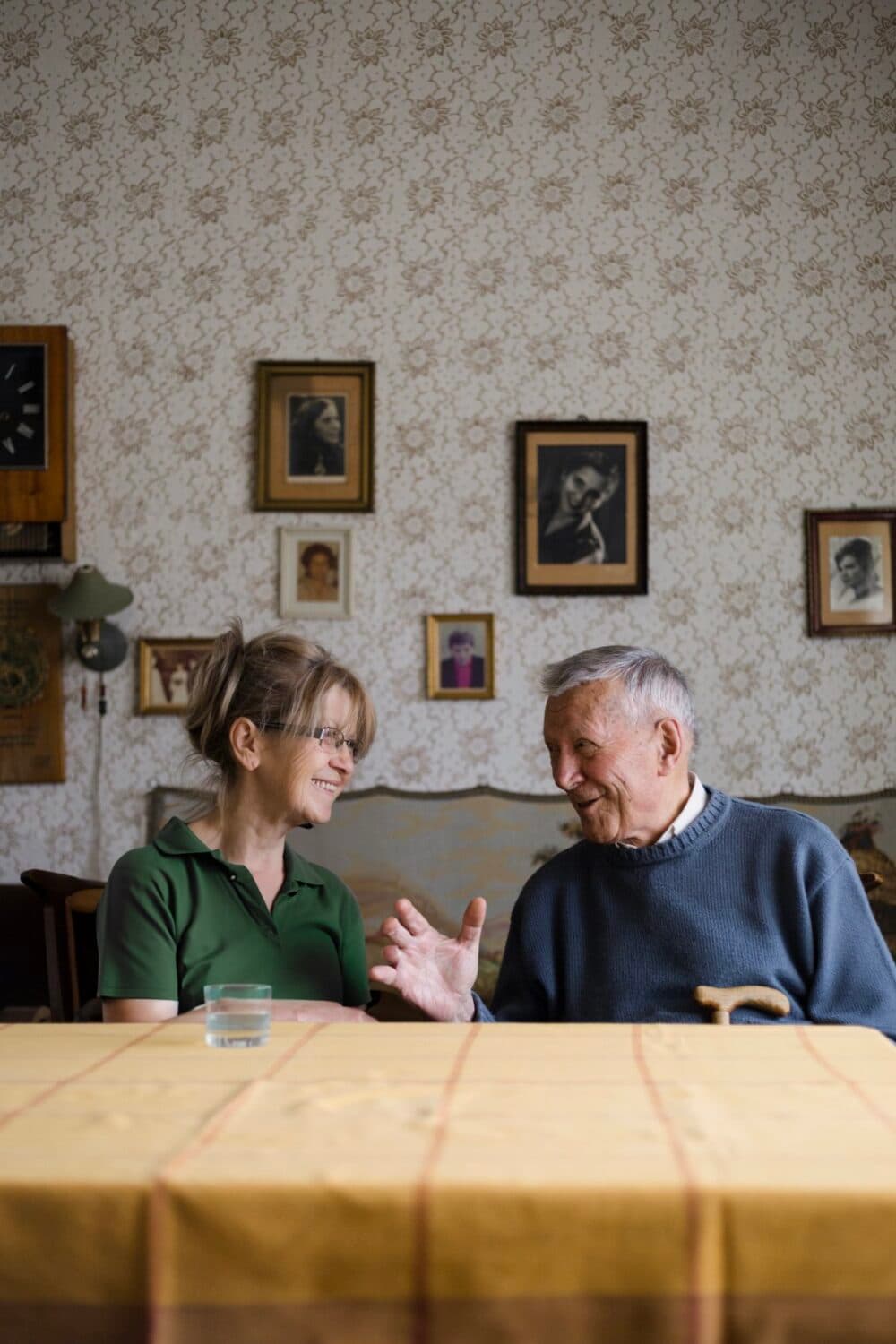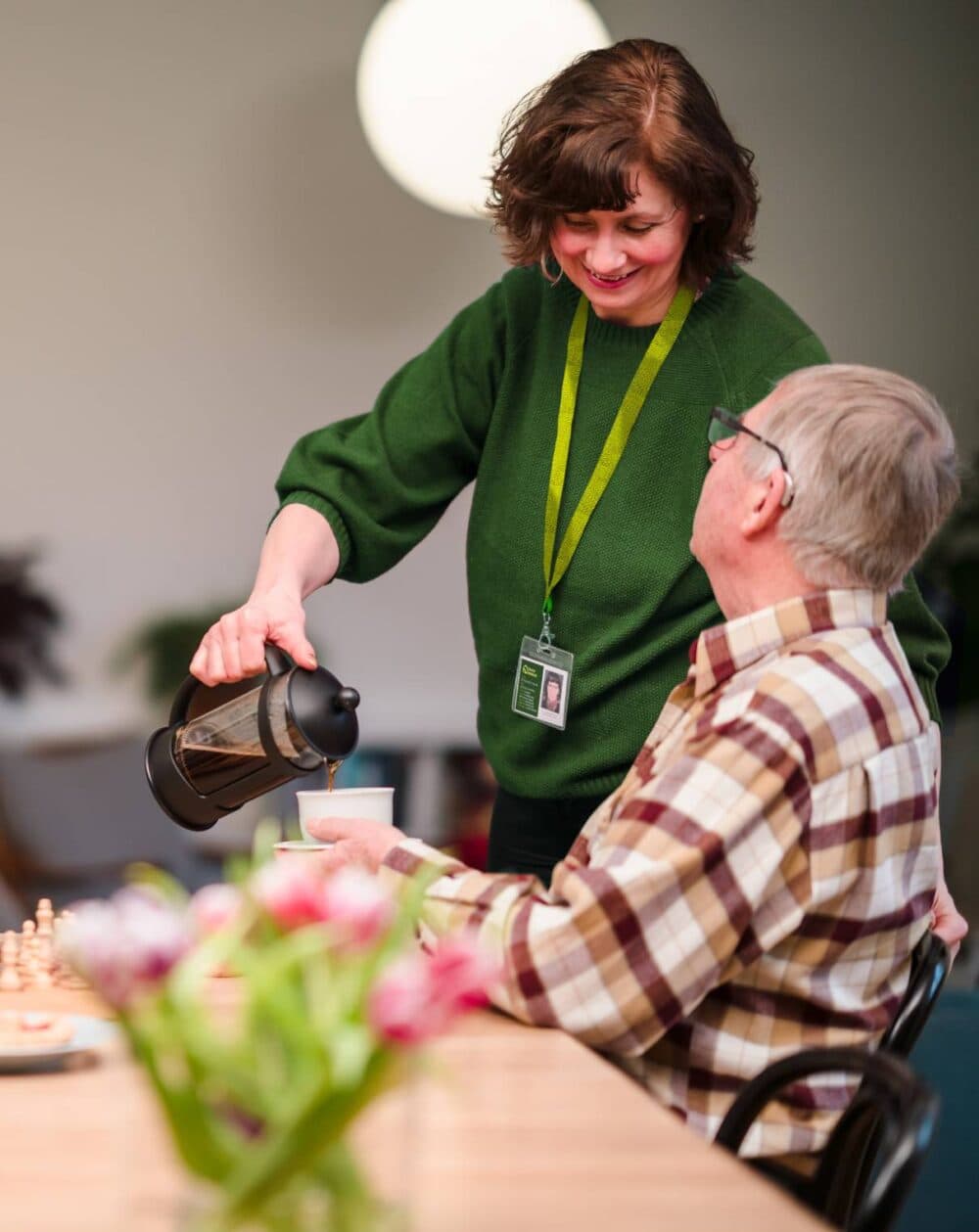What Do Dementia Day Centres Really Offer? And Could They Help Your Family?

Have you ever wondered whether a day centre might help someone you love who’s living with dementia?
It’s a question many families ask—especially when juggling work, caring responsibilities, and the emotional toll of watching someone close become more confused or isolated. At Home Instead New Forest, we understand how important it is to find the right support, both for the person with dementia and for those caring for them. That’s why we’re unpacking what dementia day centres actually do, who they’re for, and when they might be the right fit.

What Is a Dementia Day Centre?
Dementia day centres provide a structured, safe place for people with dementia to spend the day while still living at home. Typically run by local councils, charities, or community groups, they offer regular activities, personal care, and social connection during weekday hours.
While services vary, they all share the same goal: to support individuals with dementia while giving their carers a much-needed break.
Most day centres cater to people with mild to moderate dementia and operate during normal working hours. Some offer full days, while others allow for shorter visits or trial sessions. This setup can give families peace of mind, knowing their loved one is in a secure, caring environment.

Why People Use Day Centres
The impact of dementia is not only felt by the person diagnosed—it extends to everyone involved in their care. Day centres serve a dual purpose: providing purposeful activity and companionship for the individual with dementia, while allowing family carers time to rest, recharge, or handle other responsibilities.
These services can be an important part of staying well at home for longer. In many cases, they help delay the need for residential care by supporting cognitive and emotional wellbeing.
Here’s what people often gain from regular visits to a dementia day centre:
- A consistent routine that can ease anxiety and confusion
- Supervised activities that stimulate the mind and body
- Social contact with others facing similar challenges
- Personal care including help with meals, hygiene, and mobility
- A sense of identity and purpose through meaningful engagement

A Typical Day at a Dementia Day Centre
Each centre runs slightly differently, but most follow a routine to help guests feel settled. A typical day might look like this:
- Arrival and morning tea, giving people time to acclimatise and chat
- Mid-morning activities, such as singing, quizzes, or gentle stretching
- Lunch, often home-cooked and eaten together in a shared space
- Afternoon sessions, like storytelling, arts and crafts, or group discussions
- Departure and transport home, often arranged by the centre or local authority
Staff are usually trained in dementia care and ready to assist with personal needs throughout the day. Many centres also provide access to health monitoring, including support with medications and liaison with GPs or district nurses where required.

Common Activities Offered
Dementia day centres focus on more than just supervision—they aim to help people stay engaged and connected. Activities vary but often include:
- Reminiscence therapy through music, storytelling, or photo prompts
- Art and craft sessions to encourage creativity
- Games and puzzles to support memory and communication
- Exercise such as chair yoga, walking groups, or dancing
- Digital engagement, with some centres using touchscreen tables or VR headsets
- Animal visits, gardening, or even pet-friendly attendance in some locations
Each activity is adapted to suit the needs and abilities of those attending. The key is flexibility and reassurance—not pressure.

How Do Day Centres Help Carers?
It’s easy to overlook your own needs when caring for someone with dementia. But regular breaks are not selfish—they’re essential. Without time to rest, many carers face burnout, isolation, or physical health issues of their own.
As one caregiver told us:
“If I wear myself out to the point of total exhaustion, what good will I be to the person with dementia?”
Day centres provide the breathing space that can make continued home care sustainable. Whether it’s for running errands, catching up on work, or simply having a quiet coffee, those few hours can make a world of difference.

What Should You Look For in a Day Centre?
Finding the right centre for your loved one is important. Here are some things to check:
- Opening hours and flexibility – Do they offer full or half-day options?
- Staff qualifications – Are they trained in dementia-specific care?
- Activities – Do they reflect the interests or background of the person attending?
- Personal care – Can they help with hygiene, meals, or mobility?
- Cultural or dietary needs – Are these accommodated?
- Safety procedures – How do they handle emergencies or safeguarding?
- Transport options – Is there help getting to and from the centre?
Where possible, arrange a visit or trial session to see how your loved one responds. It can take time to adjust, so don’t worry if it doesn’t go perfectly the first time.

How Much Does It Cost?
Fees vary by location and service provider. Some day centres are run by charities and may be partially subsidised, while others operate on a fee-per-session basis. Expect costs to range from around £30 to £70 per day, depending on services offered.
Additional fees may apply for:
- Meals or snacks
- Transport
- Specialist activities (e.g. outings or workshops)
You may be able to access funding through a social care assessment, which can be arranged via your local council. If eligible, your loved one might receive direct payments or a personal budget to help cover the cost.

When Might Day Care No Longer Be Suitable?
While day centres are helpful in the early and middle stages of dementia, there may come a time when more intensive support is needed. Signs that it may be time to consider residential care include:
- Worsening confusion, especially in the evenings
- Frequent falls or injuries at home
- Night-time wandering
- Missing meals or failing to manage basic hygiene
- A need for constant supervision
When this happens, it can help to speak with a GP or social worker to review current care arrangements. A formal care needs assessment can help determine what support is required going forward.

Moving Beyond Day Centres
If dementia progresses to a point where day care is no longer enough, residential care homes with dementia support may be the next step. These settings offer:
- 24-hour supervision and security
- Trained staff on hand day and night
- Help with all aspects of daily living
- Structured activities in a safe, adapted environment
At Home Instead New Forest, while we don’t provide residential care, we work closely with families to help them understand their options. Our care professionals offer companionship and support at home, and we can help you plan for what comes next—whether that’s staying at home longer with live-in care or transitioning into full-time residential support.

Final Thoughts
Dementia day centres aren’t just about keeping people occupied—they’re about connection, safety, and preserving a sense of self. For many, they’re a lifeline.
If you’re based in the New Forest and wondering whether a day centre—or home support—might help, we’re here to talk it through with you. At Home Instead New Forest, our approach is tailored, respectful, and centred on real-life needs.
You don’t have to figure it all out on your own.
Contact our friendly team today to find out more about your local care options.

Areas We Serve
Lymington, Brockenhurst, New Milton, Totton, Lyndhurst & the surrounding areas.
BH23 8, BH24 4, BH25 5, BH25 6, BH25 7, SO40 2, SO40 3, SO40 4, SO40 7, SO40 8, SO40 9, SO41 0, SO41 3, SO41 5, SO41 6, SO41 8, SO41 9, SO42 7, SO43 7, SO45 1, SO45 2, SO45 3, SO45 4, SO45 5, SO45 6
5 Rashley Mews, High St, Lymington SO41 9AR, UK
01590 637 250